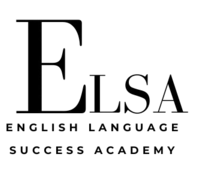Fully understanding academic vocabulary and phraseology is essential for any student or researcher aiming to communicate effectively within their field. This article explores the nuances of discipline-specific terminology, the use of transitional phrases and signposting language, and the importance of avoiding colloquialisms and idioms in formal writing.
Discipline-Specific Terminology: Speaking the Language of Your Field
Every academic discipline has its own unique lexicon, a set of specialized terms and concepts that form the foundation of discourse within that field. Mastering this terminology is crucial for several reasons:
1. Precision: Discipline-specific terms often convey complex ideas concisely, allowing for more precise communication.
2. Credibility: Using appropriate terminology demonstrates your familiarity with the field and enhances your credibility as a researcher or scholar.
3. Clarity: These terms serve as shorthand for complex concepts, facilitating clearer communication among experts in the field.
For instance, in psychology, terms like “cognitive dissonance,” “operant conditioning,” or “neuroplasticity” carry specific meanings that may not be fully captured by more general language. Similarly, in economics, concepts like “opportunity cost,” “elasticity,” or “marginal utility” are fundamental to discussions in the field.
To build your discipline-specific vocabulary:
1. Read extensively within your field, paying attention to recurring terms and concepts.
2. Consult discipline-specific dictionaries or glossaries.
3. Engage in discussions with peers and mentors, asking for clarification when encountering unfamiliar terms.
4. Attend conferences and seminars in your field to stay current with evolving terminology.
Remember, the goal is not to use jargon unnecessarily, but to employ specialized language when it genuinely enhances clarity and precision in your writing.
Transitional Phrases and Signposting Language: Guiding Your Reader
Academic writing often deals with complex ideas and intricate arguments. Transitional phrases and signposting language serve as navigational aids, helping readers follow the flow of your ideas and understand the structure of your argument. These linguistic tools create coherence and logical progression in your writing.
Transitional phrases connect ideas between sentences and paragraphs. Some common examples include:
– “Furthermore,” “Moreover,” “In addition” (for adding information)
– “However,” “Conversely,” “On the other hand” (for contrast)
– “Therefore,” “Consequently,” “As a result” (for showing cause and effect)
– “For instance,” “To illustrate,” “Specifically” (for providing examples)
Signposting language, on the other hand, explicitly indicates the structure and direction of your argument. Examples include:
– “This paper will argue that…”
– “The following section examines…”
– “Having established X, we will now turn to Y…”
– “In conclusion,…”
Effective use of these phrases can significantly enhance the readability of your work. Consider the following example:
“The greenhouse effect is a natural phenomenon crucial for maintaining Earth’s temperature. However, human activities have intensified this process. Specifically, the burning of fossil fuels has led to increased carbon dioxide levels in the atmosphere. Consequently, global temperatures have risen at an unprecedented rate over the past century. This paper will examine the implications of this trend for global ecosystems.”
Notice how the transitional phrases and signposting language guide the reader through the logical progression of ideas.
Avoiding Colloquialisms and Idioms in Formal Writing
While colloquialisms and idioms can add color and personality to casual writing, they are generally considered inappropriate in formal academic contexts. There are several reasons for this:
1. Clarity: Idioms and colloquialisms can be culturally specific and may not be understood by all readers, especially in an international academic context.
2. Precision: These expressions often lack the precision required in academic discourse.
3. Formality: The use of casual language can undermine the perceived seriousness and credibility of your work.
Consider the following examples:
Colloquial: “The results of the experiment were a mixed bag.”
Academic: “The experimental results were inconclusive and varied.”
Idiomatic: “The new policy threw a wrench in the company’s plans.”
Academic: “The new policy significantly disrupted the company’s strategic initiatives.”
To maintain an appropriate academic tone:
1. Opt for precise, literal language over figurative expressions.
2. Use discipline-specific terminology where appropriate.
3. Aim for objectivity and avoid emotionally charged language.
4. When in doubt, consult style guides or seek feedback from mentors or peers.
Elsa Says:
Mastering academic vocabulary and phraseology is a crucial skill for success in scholarly writing. By employing discipline-specific terminology, you demonstrate expertise and communicate complex ideas efficiently. Transitional phrases and signposting language serve as your readers’ guide, ensuring they can follow your argument clearly. Avoiding colloquialisms and idioms maintains the formal tone expected in academic discourse. Remember, the goal of academic writing is clear, precise communication of ideas. As you develop your academic voice, strive for a balance between sophistication and accessibility, always keeping your audience in mind.



